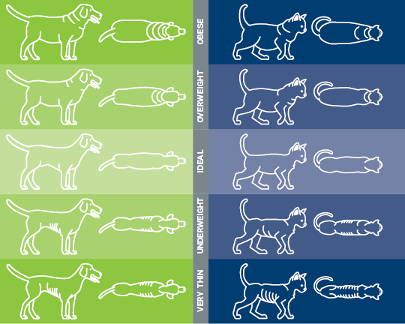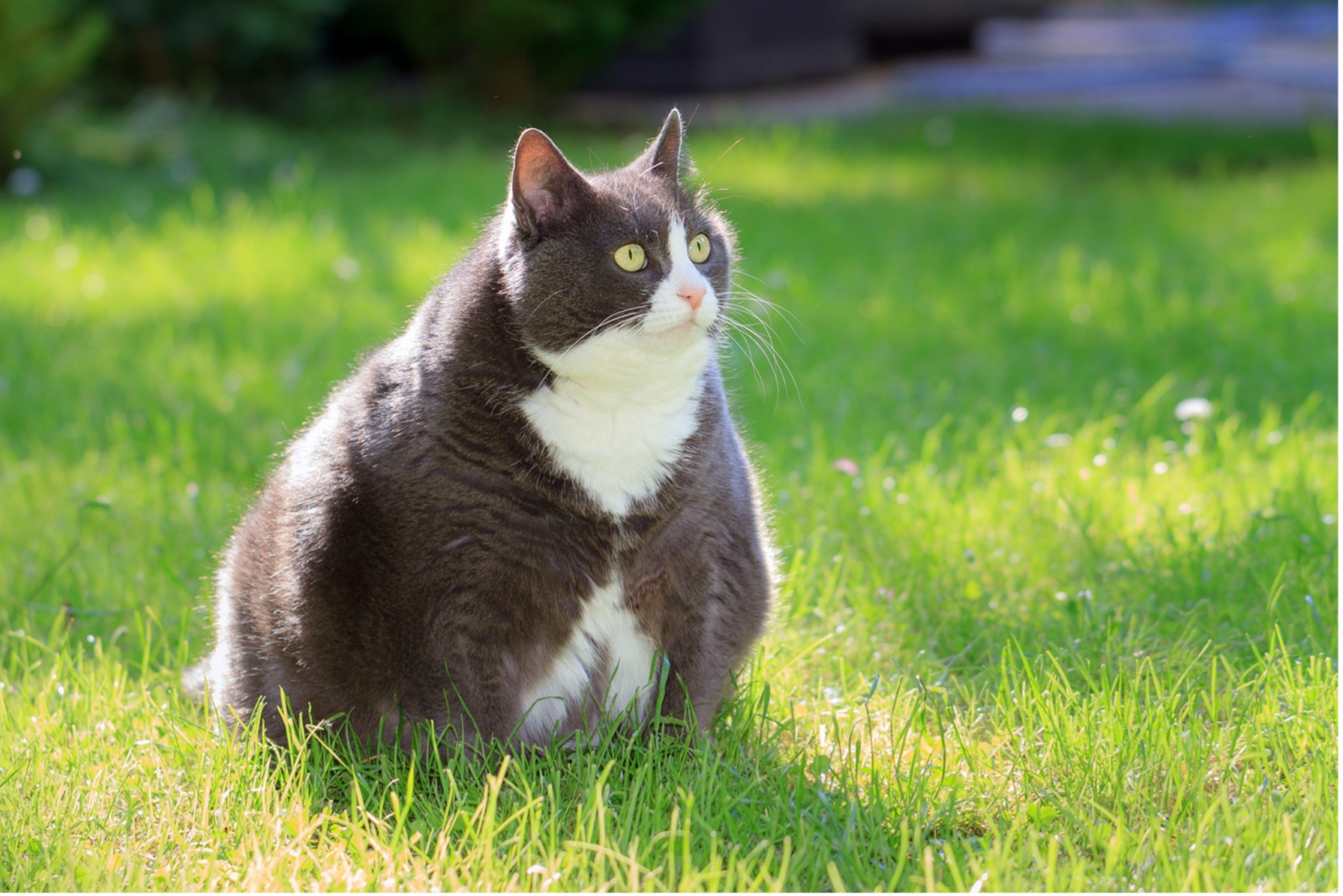Are you concerned about your pet’s weight? While extra pounds may seem harmless initially, obesity severely affects our pets’ health and overall quality of life.
But fret not! We’re here to help tackle this epidemic and ensure a healthier future for our four-legged friends. With the proper guidance and knowledge, we can set them on a path to shedding those extra pounds and reclaiming their vitality.
This article will explore the alarming prevalence of pet obesity and its underlying causes. Through expert insights and practical tips, we will provide a comprehensive guide to help pet parents combat this issue head-on.
Let’s stand against pet obesity and create a healthier future for our furry companions, one step at a time. Together, we can make a difference.
Causes of pet obesity
Pet obesity is a growing concern in today’s society. According to The Association for Pet Obesity Prevention, pet obesity rates in the United States have steadily increased for decades. A study conducted in 2022 classified 59% of dogs and 61% of cats as being overweight or obese. These alarming statistics highlight the need for pet owners and their veterinarians to act and address this issue. But why has pet obesity become so prevalent?
There are several factors contributing to the rise of pet obesity. One of the main reasons is the overfeeding of pets. Many pet owners overestimate their pet’s nutritional needs and provide them with excessive food. Additionally, poorer quality pet foods contribute to weight gain and increase fecal production, shedding, dry and brittle coats, and food allergies. Conversely, high-quality foods allow you to feed less, promote healthy skin and fur, and pets have less stool production.
The lack of physical activity is another contributing factor. Along with the rise of technology, people generally live more sedentary lives, spending more time on computers, thus affecting the time they spend walking or playing with their pets.
Health risks associated with pet obesity.
Obesity in pets can have severe consequences on their overall health and quality of life. Like humans, carrying excess weight puts pets at risk for various health conditions. Here are some of the most common health risks associated with pet obesity:
Diabetes: Overweight pets are more prone to developing diabetes. The excess body fat interferes with the body’s ability to regulate blood sugar levels, leading to insulin resistance and, eventually, diabetes.
Arthritis: Extra weight stresses a pet’s joints, leading to arthritis. The constant strain on their joints can cause pain, discomfort, and reduced mobility.
Heart Disease: Obesity can also lead to heart problems in pets. The extra weight burdens their cardiovascular system, increasing the risk of heart disease and other cardiovascular conditions.
Respiratory Issues: Excess weight can make breathing difficult for pets, especially during physical activity. This stress can lead to respiratory problems and decreased stamina.
Shortened Lifespan: Studies have shown that overweight and obese pets have a shorter lifespan compared to their healthy counterparts. Obesity can significantly reduce a pet’s overall life expectancy.
How to tell if your pet is overweight
Determining whether your pet is overweight can be challenging, especially because you see them daily, so you may not notice the gradual increase in weight over time. However, a few key indicators can help you assess your pet’s weight status. Here are some simple ways to tell if your pet is overweight:
Visual Assessment: Take a step back and observe your pet’s body shape. You should be able to see a distinct waistline behind your pet’s ribcage. If your pet’s body appears round or rectangular without a noticeable waist, your pet may be carrying excess weight.

Detecting their ribs: You should be able to feel your pets’ ribs without needing to press firmly. If you cannot easily feel their ribs, there is a good chance your pet is overweight.
Weight Check: Use a pet scale or bring your pet to Aspen Veterinary Clinic to determine your pet’s current weight. You can then compare it to the ideal weight range for their breed and size. If your pet’s weight exceeds the recommended range, they are likely overweight.
Grooming Difficulty: If you notice that it’s becoming increasingly challenging for your pet to groom themselves, especially reaching certain areas around the tail and lower back, it could be a sign of obesity.
It is always best to consult with one of our veterinarians if you need clarification on your pet’s weight. They can provide a professional assessment and guide you in the right direction.
Tips for preventing and managing pet obesity.
Preventing and managing pet obesity requires a combination of proper nutrition, regular exercise, and monitoring. Here are some helpful tips to help your pet achieve and maintain a healthy weight.
- Choose a Balanced Diet: When it comes to feeding your pet, choosing a high-quality, balanced diet is essential to keep them at an optimum weight. At Aspen Veterinary Clinic, we pride ourselves on carrying several lines of high-quality pet foods to accommodate your pet’s needs, including prescription diets for pets with special medical needs. You can visit our on-line pharmacy to shop for pet foods. https://aspenvetclinic.vetsfirstchoice.com/Pet-Food/c/400
- Avoid overfeeding and unnecessary treats: We know how hard it is to resist feeding your pets when they beg or plead with their mournful eyes. However, overfeeding your pet food or treats can quickly contribute to weight gain. So, keep to feeding schedules. When using treats to reward or train your pet, pay attention to the calories in the treats. We suggest you keep treat calories within 10% of your pet’s daily calorie requirement.
- Monitor Food Intake: Keep track of how much food your pet is consuming. Measuring portions and following feeding guidelines provided by the pet food manufacturer can help prevent overeating. Avoid leaving food out all day, as pets tend to graze, leading to excessive calorie intake.
- Avoid Feeding Table Scraps: While sharing your meals with your pet may be tempting, it’s best to avoid feeding them table scraps. Human food is often high in calories and can disrupt their balanced diet. Stick to their regular pet food to ensure they receive the necessary nutrients without unnecessary extra calories.
- Implement Regular Exercise: Regular physical activity is essential for maintaining a healthy weight. Take dogs for daily walks or engage in interactive play sessions. Cats can benefit from playtime with toys that encourage movement, such as laser or wand toys. Gradually increase the duration and intensity of exercise to help your pet burn calories and stay fit.
Creating a Veterinary Program Tailored to Your Pet’s Needs
Veterinary care plays a crucial role in managing pet obesity. The Aspen Veterinary Clinic team can provide valuable guidance and support throughout your pet’s weight loss journey. Here’s how we can help:
Professional Assessment: Our veterinarians can accurately assess your pet’s weight. They will determine your pet’s Body Condition Score (BCS). A pet’s BCS is a pet version of a human’s BMI. Based on your pet’s BCS, your veterinarian will recommend an appropriate weight loss plan.
Tailored Diet Plans: We can create a customized diet plan for your pet, considering their specific nutritional needs, age, breed, and any underlying health conditions. We can recommend the right type and amount of food to help your pet achieve and maintain a healthy weight. Sometimes, we may recommend a prescription weight loss diet for your pet. These diets are formulated to provide all the necessary nutrients while restricting calories to promote weight loss. They often contain higher levels of fiber to help your pet feel full and satisfied without consuming excessive calories.
Regular Weigh-ins: We can monitor your pet’s progress by scheduling regular weigh-ins. Regular weigh-ins allow us to track their weight loss and adjust the diet and exercise plan as needed.
Medical Interventions: In some cases, pets may require medical interventions to assist with weight loss. Our veterinarians can prescribe appetite suppressants or recommend specialized weight loss diets to help your pet shed those extra pounds safely.
Chronic Arthritis and Pain Management: Obesity in pets can lead to muscle weakening. The extra weight strains their muscles, leading to fatigue and atrophy. Lack of exercise and increased body weight contribute to declining muscle mass and strength. Obesity can also worsen joint problems, making movement more difficult and painful. For these reasons, overweight and obese pets can benefit significantly from our chronic arthritis and pain management services:
- Medications
- Surgery
- Laser therapy
- Regenerative medicine: PRP (Platelet Rich Plasma Joint Injections)
- Massage
- Supplements and herbal guidance
- Ice or heat packs
Companion Animal & Laser Therapy: Laser therapy provides a non-invasive, pain-free, surgery-free, drug-free treatment we use to treat a variety of conditions in conjunction with existing treatment protocols. Relief or improvement is often noticed within hours, depending on the condition and your pet’s response. Whether your pet is rehabilitating from trauma or injury, healing from wounds, or simply aging, your companion can benefit from this innovative approach to treating pain. Laser therapy can improve mobility in obese pets, especially if they are suffering from conditions like osteoarthritis.
Conclusion: Taking steps towards combatting pet obesity
Collaborative efforts between veterinarians and pet owners are crucial in addressing pet obesity. By working together, we can ensure that your pet receives the right nutrition, adequate, regular exercise into its routine, and benefits from top-notch veterinary care. Together, let’s unite in the fight against pet obesity and initiate the first steps towards a healthier future for your beloved companion. Reach out to us today to embark on this journey together. The beginning of the new year of 2024 is a great time to start!
Happy New Year

